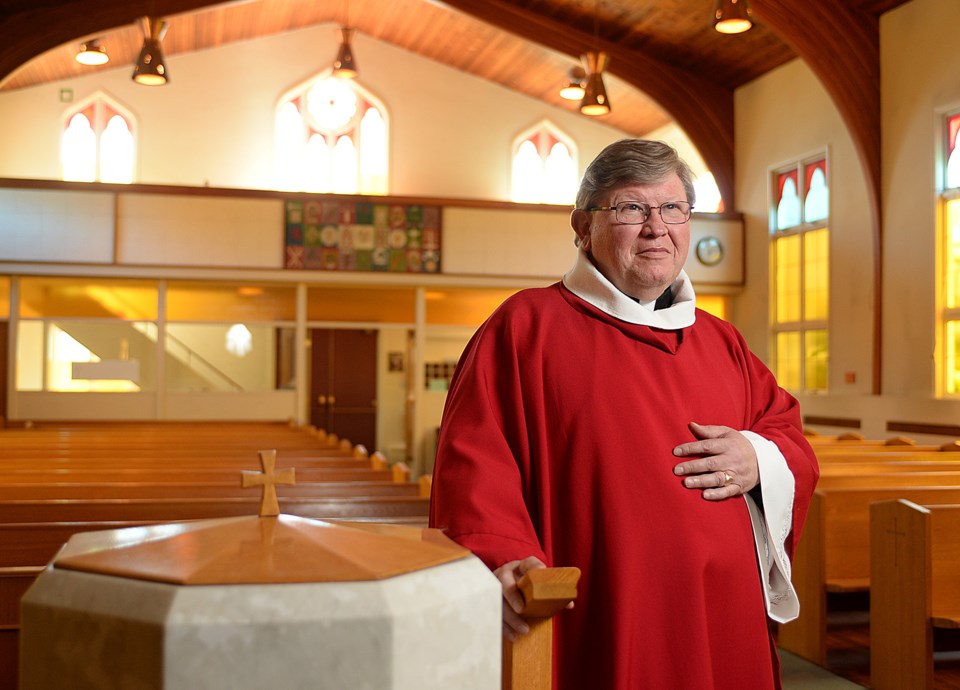This week Vancouver’s Christians celebrate Pentecost while the city’s Jews celebrate Shavuot, and it’s no coincidence that the two holidays parallel each other. If Jews and Christians didn’t follow different liturgical calendars, these celebrations would fall on the same day.
It’s one of those historical and religious peculiarities of which most faithful may not even be aware, but which remind us of the connections between two of humankind’s oldest traditions.
Shavuot began at sundown Tuesday and ended sundown Thursday. Pentecost takes place Sunday.
In neither tradition are these holy days the huge draw of the calendar’s big events. The seats of Vancouver’s synagogues and churches will not be packed to overflowing. Yet these days are absolutely central to the self-identity of Christians and Jews and to the traditions that have been passed down for millennia.
Shavuot marks the 50th day since Passover. Pentecost marks 50 days since Easter. (Those are big holidays.) Passover marks the beginning of the Hebrew people’s freedom from bondage in Egypt and the beginning of the Exodus, which ultimately led to the Promised Land – with a crucial stop at Mount Sinai, where Moses is said to have ascended to receive the word of God in the form of the Torah — the Hebrew Bible; the first five books of the Old Testament, including the Commandments.
This is accepted as the moment when the ragtag group of freed slaves became a nation, the Jewish people.
According to Torah, this occurred after seven weeks of seven days — on the 50th day after departure from Egypt.
Rabbi Stephen Berger, head of Judaic studies at King David High School, shared the story of Shavuot with a group of Jewish young people Monday night, in an “everything you wanted to know about Shavuot but were afraid to ask” Q&A session.
From the day they gained freedom, tradition says, the Hebrew people began counting.
“We spent the 49 days preparing ourselves for this meeting with God,” says Berger. Seven has a huge meaning in many traditions, viewed as a perfect number, and so seven cycles of seven days has a particularly auspicious ring.
With the revelation at Sinai, the Hebrew people, freed from the Pharaoh’s lash and aided in their escape by the divine, became the Jewish nation. And with the revelation Moses received from God came a daunting list of proscriptions — not Ten Commandments, but 613.
Among these were rules around food preparations, including the humane slaughter of animals that many Jews still follow today. Because the people at Sinai had no appropriately prepared meat, this holiday has become associated with dairy. And who will argue against cheesecake for a celebratory meal?
More to the point, aside from eating cheesecake and cheese blintzes, Shavuot is the only Jewish holiday that does not have proscribed observances.
Why? Berger says it’s because Shavuot, which literally means “weeks” in Hebrew, is less about the day itself than the seven weeks of preparation that precede it.
“The rabbis came up with customs later, but there’s no really biblically mandated customs for it,” he says. “The whole idea is during these 49 days to prepare yourself. So the real main aspect of the holiday is the preparation. If you just show up on Shavuot, you kind of missed the point.”
Shavuot, for Berger, is “not just reminiscent of us receiving the Torah in the past. It’s about really us receiving the Torah in the present.”
In addition to eating dairy products, it is traditional to study Torah all night on Shavuot. In the Talmud, Judaism’s encyclopedic Hansard of debates among rabbis across centuries, it is posited that the Hebrew people had prepared so diligently for three days before the momentous events at Sinai that they overslept on the morning that God was to hand down the Word.
“When you’re going to Hawaii, you wake up even if your alarm doesn’t go off because of so much anticipation,” says Berger. The Hebrew people’s failure to set the alarm for what was arguably history’s most important meeting is why Jews today often stay awake all night on Shavuot studying.
For Christians, Pentecost has a parallel significance. Pentecost comes 50 days after Easter, just as Shavuot comes 50 days after Passover. (As Shavuot simply means “weeks” in Hebrew, Pentecost is simply Greek for “50.”) Since the first Easter happened at Passover — the Last Supper was a seder, a ceremonial Passover meal — the dates would be the same had the calendars not diverged.
Rev. Dr. Richard Leggett, parish priest at St. Faith’s Anglican Church at West 57th and Cypress, says the parallel holy days reflect the “ongoing heritage of Christianity’s origin within Judaism affecting this key sequence in our liturgical calendar.”
Leggett, who has been involved for years in a clerical and lay Jewish-Christian dialogue group, says that, according to the Acts of the Apostles, a momentous event happened 50 days after Easter.
“The apostles, the Christian community, are gathered in Jerusalem and all of a sudden there is some sort of manifestation, a divine presence which Christians interpret to be the manifestation of the presence of the Holy Spirit,” says Leggett. “Peter, as leader of the apostles, is described as giving a lengthy speech to this scattered group of people, which is in some ways the first Christian sermon, in which he links the ministry of Jesus of Nazareth with the promise of a Messiah and begins the proclamation of the Gospel.”
While the context differs, the parallels are striking. Jews and Christians both experienced a defining experience with the divine 50 days after another transformative event.
While there is plenty of theological debate over the significance of the number, Leggett guesses the Easter-Pentecost 50-day stretch has a simple explanation.
“There are probably eight to 10 different views on what ‘50’ is about,” he says, “but I think the most significant thing is that Christians celebrate Pentecost 50 days after Easter because, for the first group of Christians, they were celebrating Shavuot.”



